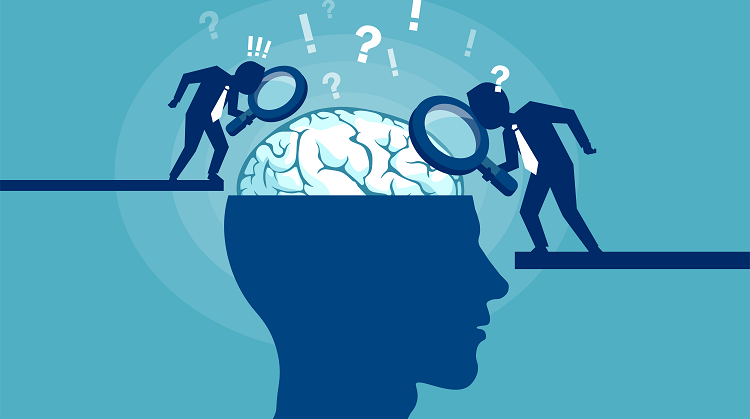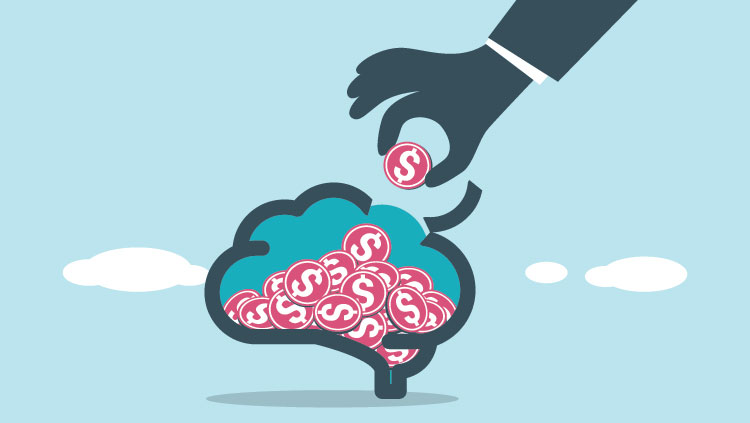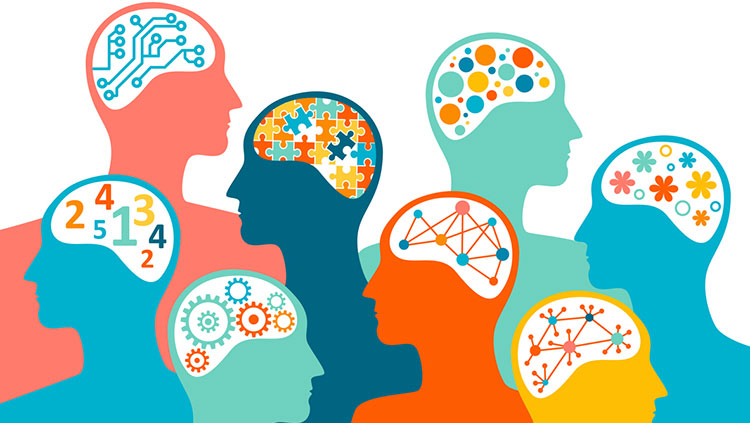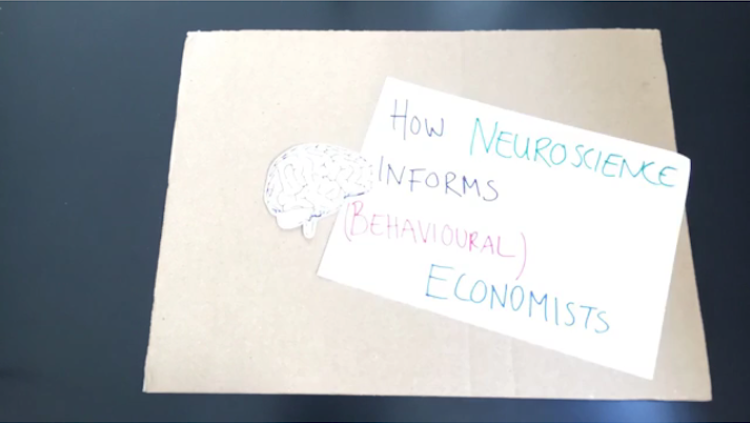Neuroethics Asks the Difficult Questions
- Reviewed13 Mar 2019
- Author Michael W. Richardson
- Source BrainFacts/SfN

Modern scientific discoveries can shake the foundational truths we hold as a society; and new brain science, in particular, raises interesting and difficult ethical issues. Neuroethics is the field that aims to address these problems head on, as a guide for the researchers pushing the bounds of applied brain science. Neuroethicists do their work by asking some difficult — and uncomfortable — questions.
Philosophy has a much longer history than neuroscience, but the questions driving the field are of obvious interest to brain scientists. “One must remember that neuroscience — and all science — arose from a field called ‘natural philosophy,’” says James Giordano, chief of the Neuroethics Studies Program at Georgetown University. “So, neuroscience naturally engages philosophical concepts.” Those concepts — such as choice, knowledge, logic, free will, and many others — have been debated for thousands of years by philosophers but neuroscientists are keen to learn more about the material responsible for these phenomenon — namely, the brain.
Neuroethics divides itself into two broad sections. The first is the ethics of conducting neuroscience research. This is simple to understand but can have huge ramifications for scientists and health care professionals.
Animal research is a key part of neuroscience — there is currently no better way to study the circuits of the nervous system in such detail as in living creatures. But while a variety of groups work to monitor the wellbeing of lab animals, the ethics of using animals in research can get murky. “The benefits must outweigh the harms” is a good rule of thumb that many scientists believe in, but that moral calculus changes based on the type of experimentation and the type of animal. In 2015, NIH ceased support of research that relied on chimpanzees, citing that the animals’ close relationship to humans and their status as an endangered species. The calculus changed, according to neuroscientists who advised the government — the benefits no longer justified the harms.
Treating humans with brain injuries or diseases also brings up ethical conundrums. Unlike a patient undergoing treatments for heart disease or a broken leg, the brain is the source of all our feelings, emotions, and free will. When getting permission to treat the brain in some way, the organ that gives consent is the same as the organ being treated. How does that affect the idea of “informed consent” in cases like Alzheimer’s disease or a debilitating brain tumor? Should a doctor proceed with treatment when the patient (that is, their brain) may not have had the ability to properly consent? Scientists can detect specific biomarkers for disorders such as depression, psychosis, and certain types of chronic pain. Are medical professionals obligated to take steps to treat a disease or disorder that currently shows no symptoms and may never materialize? When is the right time to intervene? Who gets to decide?
Neuroethics cannot provide definitive answers to these questions. But it does prompt researchers and society to think critically about issues raised from our advances in understanding the brain. As science changes, there are only more questions to ask.
One sticking point is that neuroscience is becoming more diverse. While brain research used to be concentrated in Europe and the United States, a great deal of new research is now coming from China and India, as well as countries in South America and Africa. These regions have different histories, philosophies, and outlooks on these ethical questions, which need to be respected and reconciled with western science. Other groups have formed identities around their specific cognitive abilities. For example, while most hearing people may believe a cure or treatment for deafness would be an absolute moral good, some deaf activists believe it would fundamentally erase centuries of deaf culture, including language, poetry, and performances specific to their group. That’s not a decision to make lightly, according to Giordano. And it requires critical thought as to what we consider to be “normal” or “healthy” brains.
“What does it mean for our definitions of ‘normality’ when we’re using neuroscientific tools to define normal vs abnormal, functional vs dysfunctional, ordered vs disordered?” says Giordano. He points out that there are social factors that help determine these beliefs, beyond the purview of brain scans and other scientific tools. Even then, tinkering with the brain to solve problems everyone agrees are bad can have unseen consequences. “We may be changing the way our brain functions and is structured, and using those tools to optimize, augment, or enhance our abilities in certain ways. That might include personality, cognition, [and] capability.”
These questions could be considered part of the second half of neuroethics: how will neuroscience change society, and how do we make sure it’s done in the right way? Consider the history of brain research, whose early attempts to understand the brain started or exacerbated practices such as phrenology, eugenics, forced sterilization, and unnecessary lobotomies. When the ethical frameworks of science fail, it can incur consequences that not only affect individuals, but also society.
Genetics is one area under intense scrutiny. Many brain diseases have their roots in our genetic code, and scientists can now screen for some of these diseases before birth. Emerging technologies may soon help us identify potential problems and permit us to alter a child’s genes to prevent it. But is it ethical to alter an unborn child’s genetics to cure autism? Other genetic diseases, like Huntington’s, will only manifest much later in life: Is it acceptable to “pre-treat” this disease with genetic alterations? What about making a child smarter, or increasing their chance of getting a perfect math score on their SATs?
And, as Giordano pithily puts it, “who gets the goods?” Will they only be available to children of the rich and powerful, leaving most of us behind? And will it reinforce the inequality between developed nations and undeveloped nations, where access might be lacking?
In 2018, a US-trained Chinese scientist claimed to have created the first “designer babies,” using CRISPR gene editing technology to alter twin girls with immunity to HIV. If true, they would be the first gene-edited humans in history. When the same gene deleted in the girls was deleted in mice, the animals became more intelligent — it’s possible that the cognitive abilities of these children may be enhanced as well. The announcement was loudly decried as overstepping the bounds of modern medicine, and the Chinese government stepped in to halt the work. The questions we need to ask aren’t in a far-flung future — they’re on our doorstep. We can ask similar questions of other therapies, like drugs, or devices like transcranial stimulation, that alter the brain in order to treat it.
Giordano is hopeful though. “There is an increase in neuroethical, legal, and social issues that have become more prominent in the neuroscientific community at large.” He cites the internet and open-source publishing as ways to engender ethical thinking among scientists, and organizations such as the International Neuroethics Society that continue to prod researchers to consider the ramifications of their work. The brain is the most complicated organ in the known universe, and investigating its mysteries seems to produce as many questions as answers. The progress of science has always stirred up “inconvenient” questions about ethical behavior, social conventions, and the proper use of our institutions. Asking those questions early will help us work together to create strong ethical frameworks for our ever-evolving society.
This article was adapted from the 8th edition of Brain Facts by Michael Richardson.
CONTENT PROVIDED BY
BrainFacts/SfN
References
Farah, M. J. (2012). Neuroethics: The Ethical, Legal, and Societal Impact of Neuroscience. Annual Review of Psychology, 63(1), 571–591. doi:10.1146/annurev.psych.093008.100438
Neuroethics and Philosophy. The Human Brain Project. Retrieved December 1, 2018. https://www.humanbrainproject.eu/en/social-ethical-reflective/neuroethics-and-philosophy/
Roskies, A. (2002). Neuroethics for the New Millenium. Neuron, 35(1), 21–23. doi:10.1016/s0896-6273(02)00763-8.
Roskies, A. (2016). Neuroethics. The Stanford Encyclopedia of Philosophy (Spring 2016 Edi-tion), Edward N. Zalta (ed.), https://plato.stanford.edu/archives/spr2016/entries/neuroethics/



















